Blog
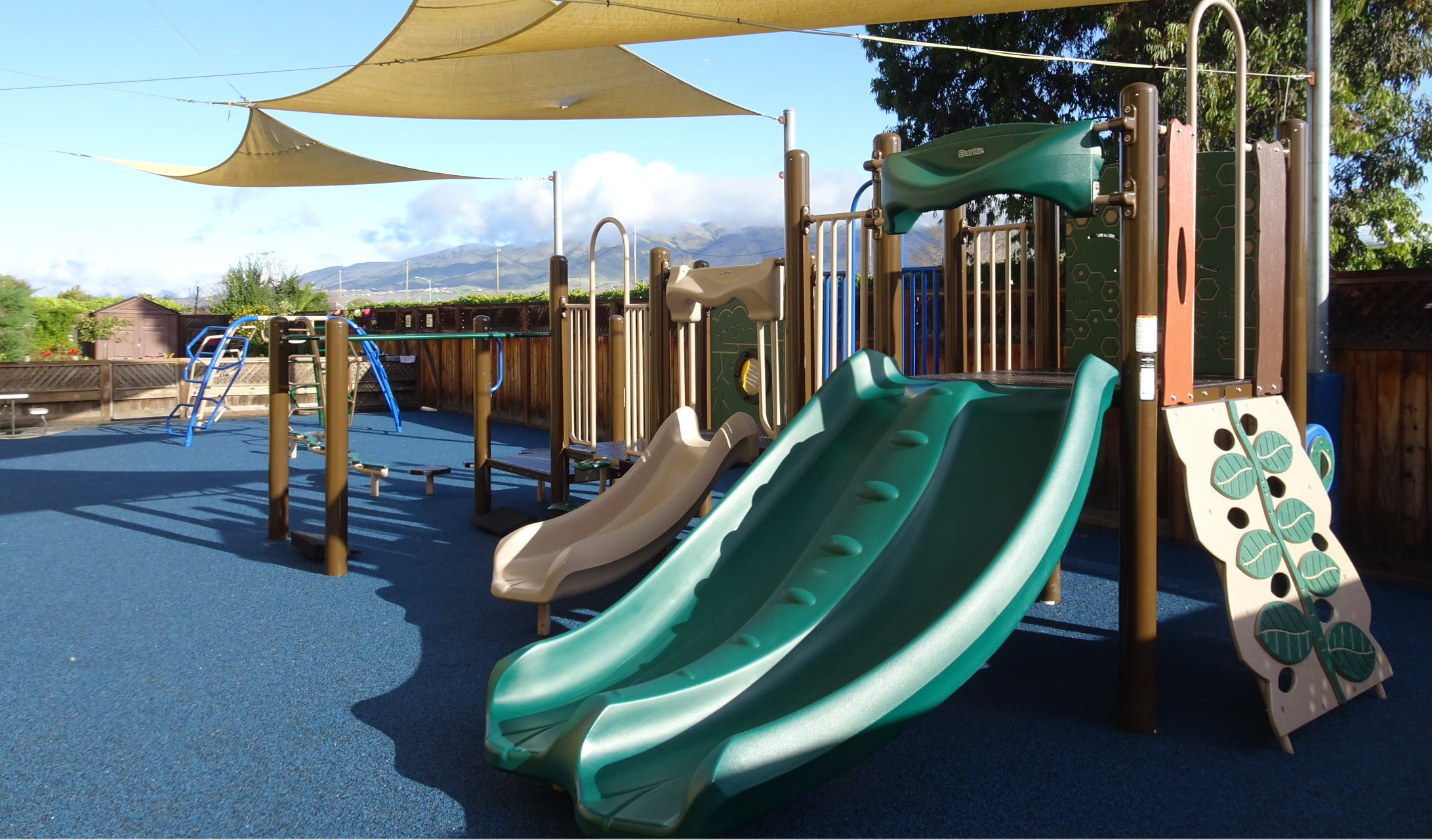
Occasionally parents express their concern that outdoor time takes away from “learning”. But children learn a tremendous amount through the type of physical activity they get from year round outside play.
Living in California – particularly here in the Bay Area – the weather is generally mild, not too hot, not too cold.
It is just right.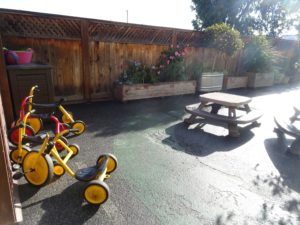
Even so, parents are always concerned about the weather and their child playing outside.
Short periods of outdoor activity in weather-appropriate clothing provides fresh air to a child’s lungs that increases oxygen flow to the brain.
The physical and cognitive impact from this type of large motor activity typically far outweighs any reasons to stay inside due to less than perfect weather.
Over the years, research has shown that gross motor skills are key to development in preschool aged children.
Learning to skip, throw a ball, ride a tricycle, jump rope, etc. stimulate gross motor skills that are a very important part of growing up – every bit a as important as learning their sounds and learning math skills.
Here are several great ways that being outdoors can be an exciting sensory experience in the early years:
Being outside is the perfect place for kids to be kids with the freedom to shout, jump, run, hop or skip. Parents who take their children outdoors and support their play accelerate the child’s development.
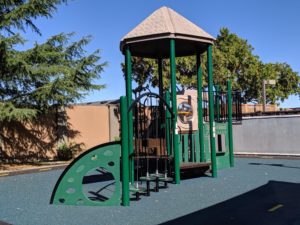 The development of motor skills is a progression which begins first with the gross motor skills that involve a child’s whole body.
The development of motor skills is a progression which begins first with the gross motor skills that involve a child’s whole body.
To successfully progress on to the development of the fine motor skills involved with using a knife and fork or holding a pencil for example, children must first develop a level of mastery over the motor skills controlled by their large muscle groups.
Having cared for Nido (infant aged children) for over 25 years I can say with confidence that babies sleep better at night if they’ve had some fresh air and sunshine during the day.
The dynamic nature of outdoor environments always make for an incredibly stimulating and multi-sensory place to play.
This is important as babies and young children alike learn and gain experience by using all five of their senses.
Children who gain knowledge and appreciation of nature are more likely to become adults with a greater sense of environmental awareness.
We see it time and time again: those children who have the opportunity to play outside daily tend to develop stronger immune systems and experience fewer illness-related absences from child care.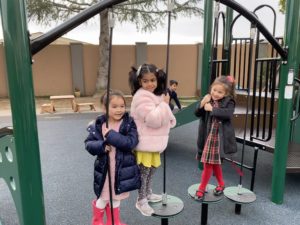
Time spent outdoors provides children with protection against life stresses and a general sense of peace and well-being.
Vitamin D helps promote better moods, energy levels, memory and overall health so it’s critical young children get plenty of it.
The primary natural source of this important nutrient is sunshine – something we are fortunate to have year-round here in California.
To get the recommended daily dose of Vitamin D a child needs to spend 10-15 minutes outdoors in the sunshine every day.
Playing outside also provides something many children don’t get enough of anymore – exercise.
Exercising while having fun is the best kind of exercise, and that’s exactly what playing outside provides.
Riding bikes, playing tag with friends, going down the slide, watering the garden and more has the added benefit of stimulating the imagination.
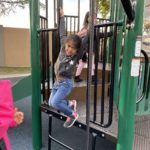 Children who are allowed free play outdoors learn to solve real life problems better than if they only spend all day indoors.
Children who are allowed free play outdoors learn to solve real life problems better than if they only spend all day indoors.
Free play outside allows children to independently learn and problem solve.
Regardless of if they’re learning how to get along with friends or trying to figure out the best way to build a fort – they are problem solving.
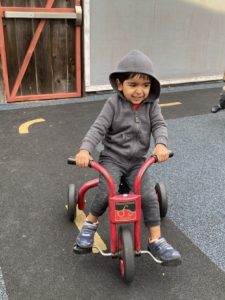
Whether it is summer or winter, young children need all the items detailed above and playing outside is a great way to get them all at once!
If you are experience blizzard-like conditions outside obviously your children should stay inside. But when it’s nice outside get them outdoors and let them play!
Best,
-Colleen
PS: dont just take my word for it, here are some links for more on this topic:
Child’s Play Builds a Better Brain